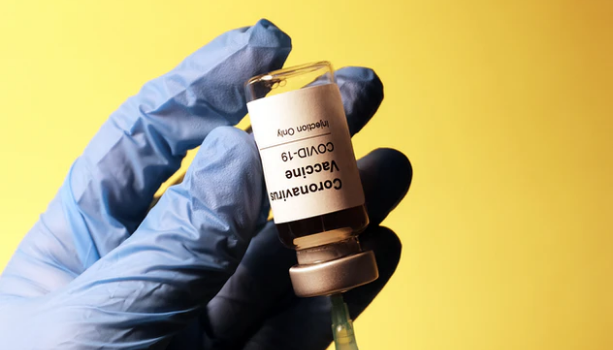What is a Vaccine Passport and How Reliable is It?
Coronavirus Vaccine Passport
The Coronavirus vaccination rollout is finally taking place and only in the US alone, more than 11 million doses have been administered. Governments and pharmaceutical companies in many countries have supported the development of different vaccines from the very beginning of the pandemic, and vaccines that have completed clinical trials are finally being supplied by various pharmaceuticals & biotechnology companies. Although the speed and method of the vaccination process vary by country, efforts are being made to create herd immunity as quickly and effectively as possible. Coronavirus Vaccine Passport (or Green Travel Pass) might actually let those (who have been inoculated against the virus) travel again globally.
Some European countries are already issuing corona vaccination certificates. Israel, the country with the highest vaccination rate to date, has also revealed plans to issue a ‘Green Passport’ and allow people to expand their daily activities routine once they have received the first vaccination. In addition, Poland, Portugal, and Spain are reviewing the introduction of vaccine passports, and moreover, Hungary is working to minimize public restrictions as well.
Officials from the International Air Transport Association (IATA) argued that the use of the vaccine passport system should be rushed to help promote border openings and quicker economic recovery. The intention here is to provide a foundation and grounds for not only cross-border movements but also relatively free activities in people’s daily lives and the opening of large-scale events. However, there are a few things to consider before the governments adopt the passport system.
1) The effectiveness of vaccination and the issue of discrimination against specific groups
There are no real examples of herd immunity formation right after the vaccination rollout, just yet. It is known that immunity is formed only after a certain period of time after vaccination is completed, and even if the herd immunity is formed, the possibility of the virus spread still remains within each country. In other words, it does not lead to the equation “vaccination = formation of perfect herd immunity”, and therefore, giving privileges solely to those who have been vaccinated will risk new outbreaks.
Also, giving a person a privilege on the basis of vaccination can cause discrimination issues. In fact, vaccination officials in the UK have argued that the privilege should not be granted, also the German Ethics Committee has expressed concern over the privileges given to those inoculated without sufficient evidence of their contagiousness reduction, which could create social anxiety in the long run. A French minister also said that the value of equality should be upheld by preventing privileges from being granted to everyone until they have been vaccinated.
2) The reliability issue
Most of the vaccine passports that are currently being reviewed in each country are in the form of digital apps. As a vaccine passport is issued by syncing the vaccination status and each person’s information, there could be a risk of a data breach or cyber-attacks. Not long ago in Israel, buying and selling vaccination certificates has been discovered which could potentially put people’s privacy and data at risk.
In the end, even if a vaccine passport was adopted by governments, if it cannot effectively respond to cybersecurity issues in real-time then it won’t be able to gain any sort of reliability as expected. As governments and healthcare companies are currently developing services that can be used to issue vaccination certificates, we must not forget to consider implementing security measures from the very beginning. In other words, security-related procedures must be taken into account to prevent any breaches or forgery problems during the entire verification process, in addition to encrypting health and personal information included in the certificate.
Vaccine Passport Using Blockchain Technology
Meanwhile, some companies are preparing a certificate service using blockchain Distributed ID (DID) technology. In the process of issuing, storing, and verifying personal information and proof information, the use of blockchain technology ensures reliability and helps maintain a safer environment for all involved.
The DID method is a decentralized form in which data is not owned or managed by one specific institution. It’s mainly used for storing data on the terminal by individuals who are the subject of the specific information and is also used for submitting only the necessary authentication information when vaccination proof is required.
Since various information is stored in an encrypted state on the blockchain, only the person who has the key to decrypt the encryption can access the data. In addition, the data stored on the blockchain is linked to all users in the form of a chain, so it can fundamentally prevent a specific person from falsifying data.
There are numerous issues that need to be solved before the development and commercialization phase of the vaccine passport occurs. In particular, solving the cybersecurity-related issue is very important in the commercialization phase and there is a need for a secure and non-discriminatory proof service using data encryption and blockchain technology.
Penta Security provides various blockchain solutions based on encryption technology from digital asset security to multilateral computational (MPC) solutions, real-time distributed data sharing solutions, to data-sharing platforms (which can be used in various industries such as public, manufacturing, and logistics by utilizing the features of blockchain). Learn more about Penta Security’s use of blockchain here today.
Check out Penta Security’s product lines:
Web Application Firewall: WAPPLES
Database Encryption: D’Amo
Identity and Access Management: ISign+
Car, Energy, Factory, City Solutions: Penta IoT Security
